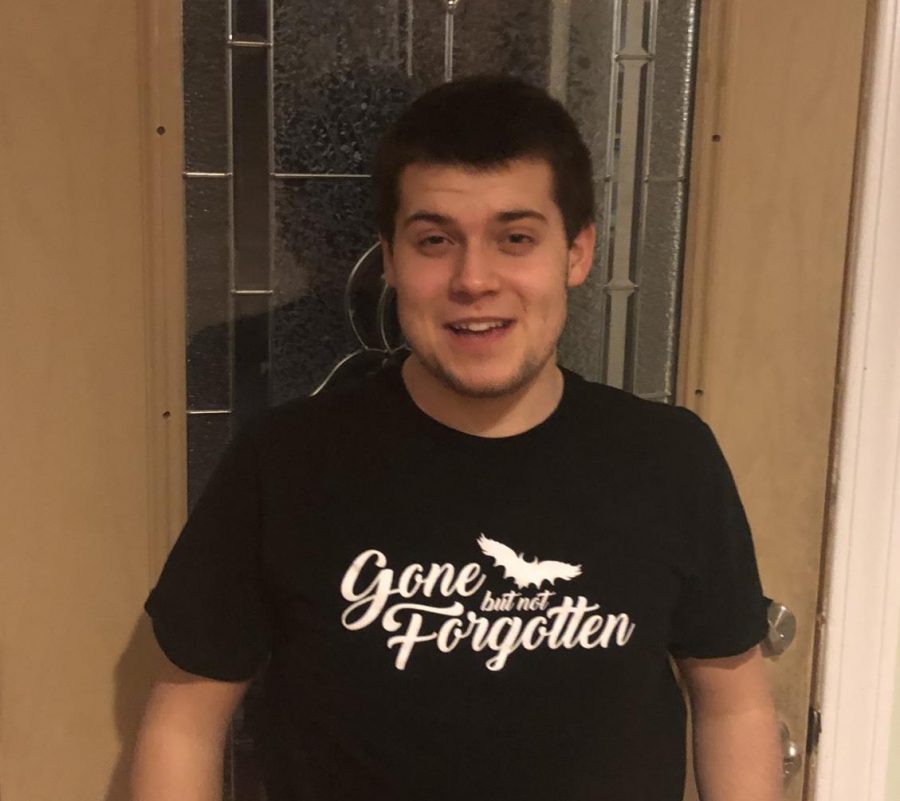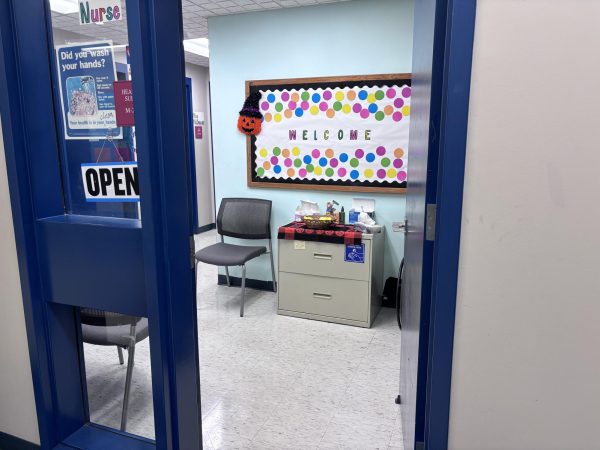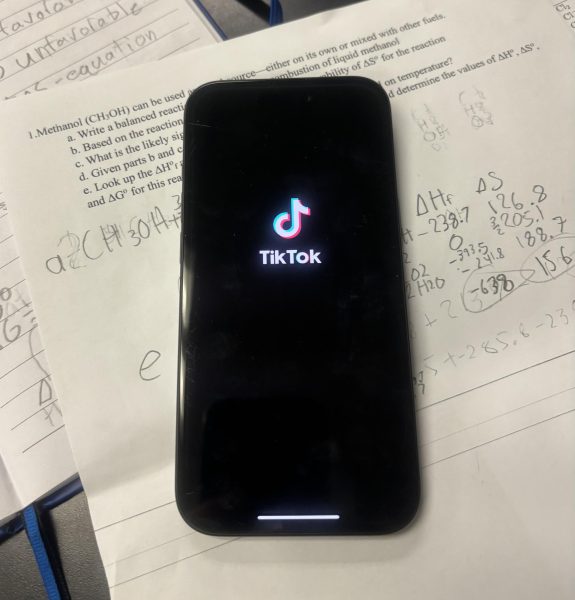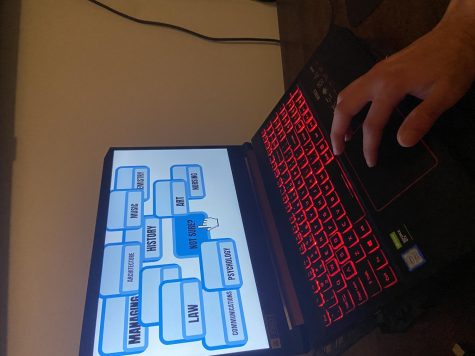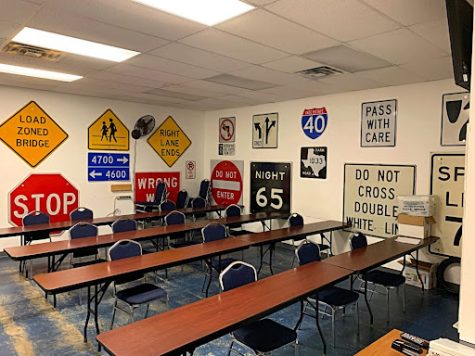Concussion Protocol
Studies continue to show risks of football and the head trauma that comes with it, not excluding our Triton Vikings
Triton junior Kyle Noonan, self-described concussion-king and member of the football, wrestling, and track and field programs at Triton. (Valianti Photos)
As the controversy surrounding head trauma in football continues to grow, questions regarding how Triton handles concussions have arisen.
Triton junior Kyle Noonan, a member of the football program and recipient of multiple concussions, says that his brain has definitely been affected by the repeated hits.
“You feel really confused for a while, and your brain just kinda feels fuzzy,” says Noonan. “I’ve had some really bad ones, my first one I got amnesia. There were some I didn’t really do much about. I don’t think I’ve even been to the doctor for my last three.”
The Voice knows that right after the Patriots toppled the Rams in Super Bowl 53, is an exceptionally hard time to criticize football and especially the NFL. Here in New England, we are still hoarse from cheering and droopy-eyed from celebrating our team’s domination. If one listens hard enough, they can probably still hear the far off chant of “Beat LA” echoing across the sky.
All this excitement can often mask the growing question of “is football safe”, and should it be allowed to continue in its current form given all the new information that continues to surface about it. With every hit, a football player’s brain receives a series of traumas due to its bouncing from wall to wall in the skull. These repeated traumas, play after play after play, lead to the development of the neurodegenerative disease Chronic Traumatic Encephalopathy, or CTE as it is more commonly known. At first, when the issue originally presented itself, it was believed that the only way to develop CTE was through repeated concussions, leading to an apparent crackdown on concussion protocol in relation to football. It is now known however that it is not just concussions that breed CTE, but any head trauma, meaning that from the NFL to Pop Warner, football players are constantly damaging their brains and their ability to think long term.
It is now known that childhood represents a period where the brain is going through its most integral stages of growth and development, and repeated concussions hinder that process tremendously. Concussions do not necessarily change the structure of the brain, but rather the function. One study followed a high school player and saw that after only one season, his brain was drastically changed when compared to where he started out. CTE leads to severe behavioral disorders as well as the inability of free thought and rationality, and often ends in suicide.
The Voice sat down with school nurse Mrs. Nadine Marchettere to discuss how she deals with concussions at Triton and to get her opinion on the controversy.
“We’ve had nineteen (concussions) this year so far,” said Marchettere. “And a good portion have been football players.”
“The bad part about recurring brain injuries is that each time the brain heals slower,” she says. “And with that you are going to see learning difficulties, depression, anxiety, chronic headaches, and you’re gonna have kids really have a difficult time with learning and sustaining that knowledge.”
Marchettere stated that she did not think that the recent calls for High School and Pop Warner football to either be switched over to non-contact, or abolished entirely, were too extreme.
“You only have one brain,” says Marchettere. “ It’s not like your arm where when you break it’ll just heal. You only get one for your entire life.”
“I don’t know if it is that fair to just get mad at football,” said Triton junior Michael Farago. “I mean kids get concussions in plenty of other sports, even playing speedball in gym class.”
Though there is still some debate, and the topic is still considered controversial, there are many solutions out there that aim to appease both sides of the issue.
“In my opinion, there isn’t much we can do to keep the brain safe,” says Triton junior and football player Hayden DeLisi. “A concussion is the vibration of the brain in the skull and we can’t really do much to stop that. Maybe putting more cushioning in the helmets wouldn’t hurt, and definitely making sure that no steps of protocol are skipped out on by the guys so that they take the time they need to get better.”
“Maybe just save the hits for the games and keep practices no contact,” says Marchettere. “Because it is those small microtraumas, not just concussions, it is those small tares and bleeds of the brain that do the damage long term. Especially now when your brains are all in a tremendous time of growth.”
Luckily, Triton is definitely on the better end as far as high schools go when it comes to dealing with head trauma, concussions in particular, but there are plenty of schools and leagues out there in which this is not the case. Despite all the arguing over the specifics, it is clear that repeated hits to the head are not good for children whose brains are still growing and developing. There is something that needs to be done to help make pre-college football safer or pretty soon, it may cease to exist as many have already called for. They must adapt to the times we live in and the knowledge we all possess or else high school football may fade into a distant memory.
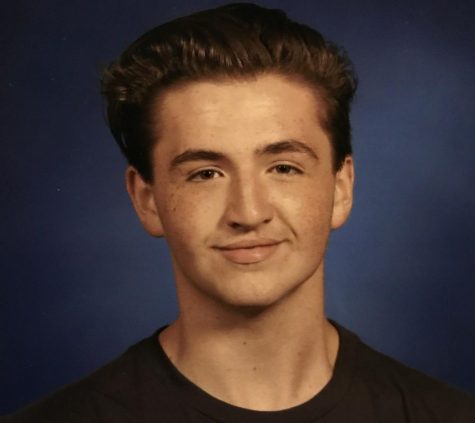
Andrew Valianti is a junior at Triton High School who relishes the opportunity to inform the student body about the goings on of the world around them....


